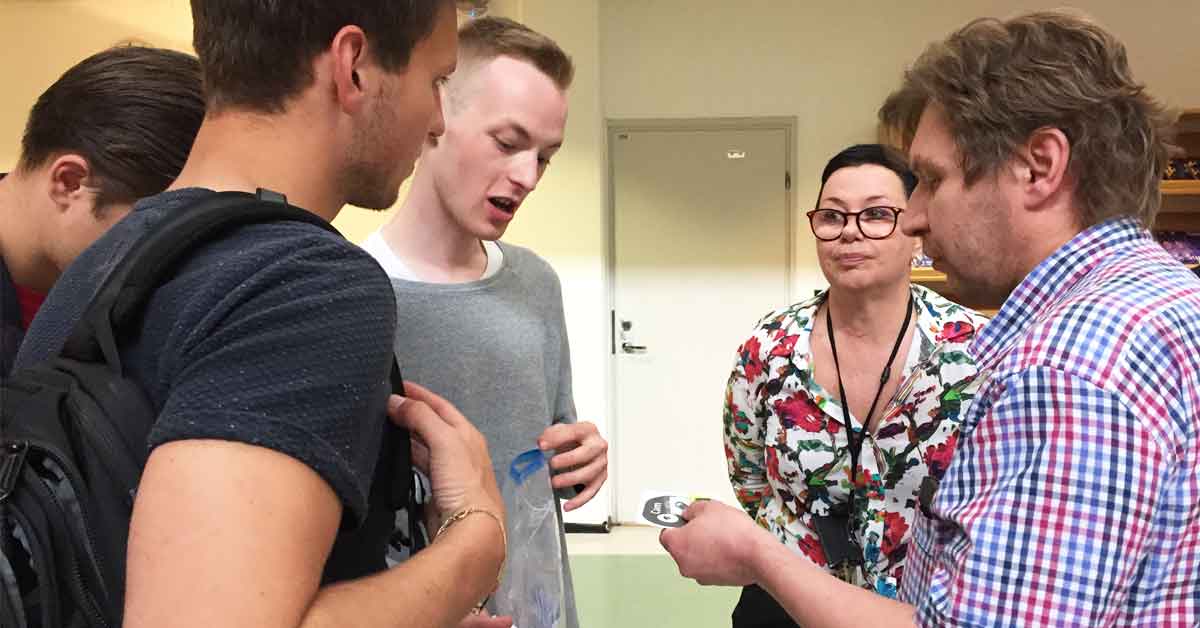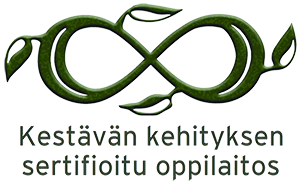Responsible business and administration
Responsible business is an economic megatrend. Today’s investors and consumers are vigilant in terms of product sustainability.

By acting responsibly, a company can increase its profitability and competitiveness. Responsible business is reviewed and planned from economic, social and environmental perspectives.
Responsibility as the company’s value
Sustainability is often recorded in the company’s values and is thereby incorporated into the company’s operating culture and business principles. Transparently expressed values and business principles allow the company and all its stakeholders to assess how successfully these principles are adhered to.
Values also strengthen the company’s reputation and brand. Similarly, failure to abide by them erodes the brand’s value. (tat.fi)
Circular economy – the foundation of future business
Social welbeing will not increase just by churning out more and more products. In a circular economy, consumption is based on the use of services and the re-use of raw materials, instead of ownership. At the end of a product’s useful life, it is not simply lost, but it is used to make new products.
Business studies are increasingly aimed at future know-how: skills that will create new jobs, strong and responsible business and results, and also reduce environmental loads.
Perho CTB College focuses on both skills that are required today and in tomorrow’s world. Sustainable business models and business options offered by the circular economy are increasingly being brought to teaching and other activities. At its best, the circular economy creates new jobs and new business and saves costs. Reducing the amount of waste produced and the consumption of natural resources will reduce our environmental impact. It is said that the circular economy is creating the greatest change in production, consumption and the global economy for 250 years.
According to an estimate by the Ellen MacArthur Foundation, the circular economy market is worth up to EUR 700 billion globally, of which, according to a report by Finnish Innovation Fund Sitra, more efficient resource circulation can give the Finnish economy an annual growth potential of EUR 1.5–2.5 billion by 2030.
Join the circular economy transformation! We learn about circular economy business models and entrepreneurship in our studies. Do you have a good business idea that follows the principles of a circular economy you want to pursue upon graduation? Your studies provide an excellent stepping stone for something like this. Ask for advice, network with other people interested in the circular economy, and ask your teacher to spar your business.
Recycle, maintain and repair products. Get products made from recycled materials. You don’t have to own everything – you can also borrow or rent. Consider your own consumption and familiarise yourself with related companies that follow the circular economy business model.
Responsible business
A responsibly operating company maintains the company’s solvency, pays fair wages to its employees and complies with laws and regulations both in Finland and abroad. The studies consider what is responsible business and how profit is produced by responsible means. Responsible choices are also reflected in consumer behaviour. Various eco-labels and certifications make it easier for consumers to make informed choices, and many brands and company images are based on sustainable values and environmentally friendly products.
Focus on production chains and the origin of products and weigh their environmental impact. Learn about companies that stand out from others in terms of their ethical, sustainable and responsible choices and generate profits also in the future without sacrificing these principles. For anyone at Perho CTB College, a big turnover is no longer enough: business must be based on something more valuable than money. A successful business must also generate wealth in the society around it and be visible positively not only in the owners’ pocket.
Responsible choices are also reflected in consumer behaviour. Various eco-labels and certifications make it easier for consumers to make informed choices, and many brands and company images are based on sustainable values and environmentally friendly products. Business studies focus on the importance of a brand and the social responsibility of companies to guide consumers towards more responsible and sustainable choices.
Buy responsibly produced products. The Swan Label, organic labels and Fair Trade labels and other brands such as the MSC label brand for responsible fishing, and palm oil brands guarantee that responsibility is taken into account in the companies and their products.
Learn to distinguish between need and unnecessary products. Buy less, but of higher quality. The manufacture, production, transport and sale of raw materials for products consume natural resources. It takes almost 3,000 litres of water to make one T-shirt, also involving a significant amount of chemicals. By buying fewer new products, customers can save on natural resources. Transferring from the consumption of products to services is also an environmental act.
Responsible consumption is hard work. Sometimes it would be more nice to just buy a new product and be happy about it. But this is not how the world gets better. We must all learn to become more critical consumers, demanding product information, transparency of the production chain and product traceability. The wonderful product may not feel so wonderful after all if it turns out that it was produced by child labour or under inappropriate conditions for extremely low wages. Would you agree to work like that? So don’t buy unethically produced products unless you’d personally prepared to work in a sweat shop.
Consumers can only make a difference with their choices. It’s the media’s job to expose wrongdoings to consumers and it is up to all of us to study and find out. When consumers exerts pressure on businesses and producers, they will begin to respond by making their business more responsible. Responsible business as a brand is a competitive advantage but very sensitive to drawbacks. This means that once a promise has been broken, it is very difficult to regain customers’ confidence in you.
A responsible workplace is safe
Safety – a necessity for businesses
Responsibility is also reflected in the safety of employees. Occupational safety is considered from the viewpoint of safety at work and the wellbeing of the work community.
In the business sector, ensuring safety has been key issue, especially in the commercial sector, for a long time. There have always been risks associated with the manufacture, transport, storage and presentation of products: how to ensure that the raw materials of the product are safe or that no damage is caused when unloading.
Within the store, criminals pose a challenge. Crime and the resulting criminal losses are also said to bring annual losses of around EUR 460 million to trade. Moreover, increased crime and threatening behaving by customers undermine a sense of security by other customers and shop staff. (Järvinen & Koistinen, 2010)
From the customer’s point of view, the shop’s staff must first and foremost ensure safety in the shop. It is important that the shop staff or customer service providers know how to deal with threatening customer situations. (Järvinen & Koistinen, 2010). Customer service providers and the shop staff must have sufficient knowledge of the various aspects of security.
Security threats – a challenge for the future
The latest security threats for businesses are posed by data breaches brought about by multi-channel systems and data system development.
The greatest risk in terms of data security threats is that employees may not be able to process data correctly or do not know what information they are allowed to disclose.
It is important for employees to participate in all training organised by the employer regarding new processes, the processing of data in registers and service situations, and safety know-how in challenging situations.
Security know-how has been seen as one of the key skills needed in the business sector in the future (Rajander-Juusti, 2013). Business students will learn about safety issues both in the classroom and during practical training. We ensure that supervisors in practical training workplaces have inducted the student sufficiently and walked them through the necessary safety instructions.
It’s pleasant to work in a wellbeing community
It’s pleasant to work in a community where wellbeing issues are in order. No one is bullied, everyone is treated equally and with respect. No one is discriminated against.
In a responsible and safe work community, wages are paid on time and exactly as stated by the collective agreement. Well-being at work has been shown to have a direct impact on the efficiency of workers and on their willingness to commit to their jobs.
Don’t stay in a bad workplace. Switch to something better.



